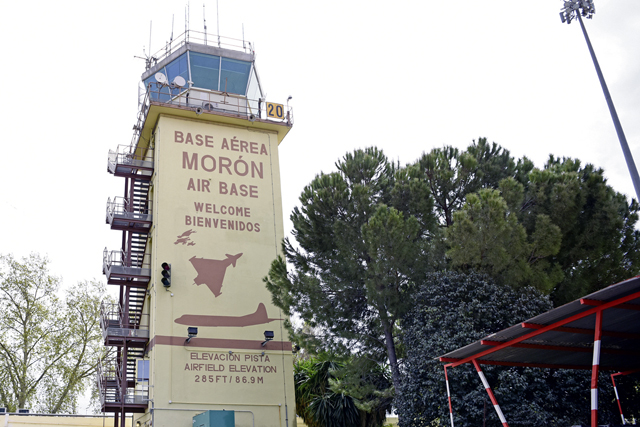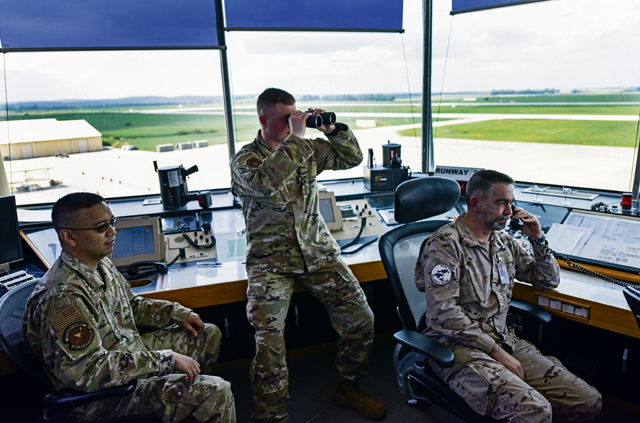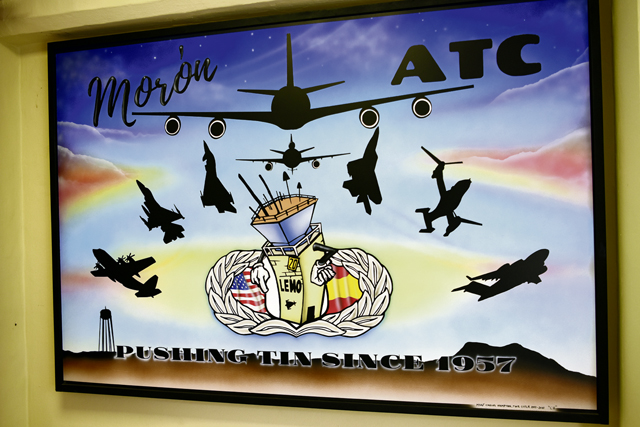
MORÓN AIR BASE, Spain — Working as an air traffic controller can be a difficult and stressful job, but performing those duties while sometimes speaking another language presents an additional challenge.
U.S. Air Force Airmen assigned to the 496th Air Base Squadron air traffic control tower at Morón Air Base, Spain, operate the only bilingual control tower in the United States Air Forces in Europe – Air Forces Africa.
U.S. air traffic controllers stationed at Morón AB aren’t there to translate or interpret like traditional linguists, they use their language skill to support their primary job.
“In this career field there is an elite sub-unit of air traffic controllers that are dual-hat linguists,” said Staff Sgt. Tyler Carter, 496th ABS air traffic controller. “We are still performing as air traffic controllers, but we also perform Spanish linguist duties.”

U.S. and Spanish air traffic controllers sit side-by-side and work together to accomplish the mission.
“We can work interchangeably,” said Master Sgt. Lord Siegfried Quimson, 496th ABS air traffic control tower chief controller. “We still prioritize controlling our own aircraft and the Spanish prioritize controlling their own aircraft, but can facilitate the same requirements for both.”
U.S. Air Force controllers must first complete a nine-month course at the Defense Language Institute Foreign Language Center in Monterey, California.
The noncommissioned officers who attend the course are expected to maintain proficiency as air traffic controllers as well as become tactically fluent in Spanish.

“There is a demand for native speakers and experienced Spanish speakers in air traffic control,” said Carter. “But, I’ve seen people with no prior experience in Spanish finish the course and be just as fluent as me and I’ve been speaking Spanish for years.”
Air traffic controllers stationed at Morón AB play a major role in the United States European Command’s ability to project airpower, making this partnership very valuable.
“The U.S. Air Force doesn’t have operational control of this airfield, nor this tower, we operate in cooperation with the Kingdom of Spain,” said Quimson. “Not only do we entrust our ATC’s with U.S. assets, but they are also ambassadors continuing to build upon a partnership we have here.”
The motto of the 496th ABS is “we project airpower,” and the U.S. controllers as well as the Spanish controllers are vital to achieving that mission.
It’s a good feeling to know that dual hat controllers like us have brought U.S. airpower to almost every Latin country that’s needed it, Carter said.







